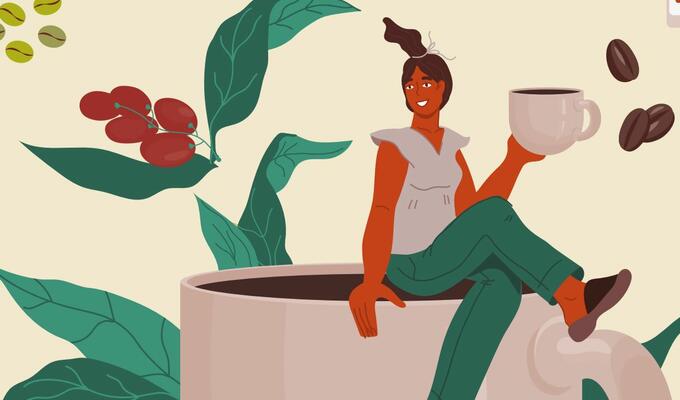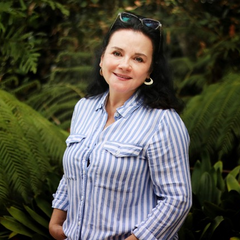
Q&A with an expert - Sustainable is the New Normal
Q&A with an expert
A quick chat with Blanca Castro, Executive Director of the nonprofit International Women’s Coffee Alliance (IWCA).
Blanca is a longtime international coffee professional with more than 16 years of experience in the coffee sector. Originally from Guatemala she has served as the chapter relations manager for the IWCA since 2016. During that time, she helped grow the women-supportive organization to include 33 national chapters in traditional coffee producing countries plus a small handful of traditional consuming countries such as the United States and Italy.
Blanca Castro: Sometimes I feel like it's a nonsense thing, honestly – it’s become part of that global jargon that means everything and nothing. But for me, sustainability is awareness. It’s about showing concern and respect for how coffee is produced, commercialized and the effect it will have on people and planet.
Blanca Castro: Right now, a lack of visibility and a lack of appreciation. Apart from a few exceptions, there is generally so much more that can be done. It’s not that women should take up all the focus - because I think that before women we need to pay attention to youth - but without women, who are often the centre of family and community, we can’t pave the way for the youth.
Opportunities available to men and women remain heavily unbalanced, meaning that there’s overall less participation from women, and that needs to be improved. Women can play a key role also in fostering and informing a more gender-inclusive and socially aware next generation in coffee.
Blanca Castro: The feeling is indeed that things are not changing and that we’re stuck in a vicious circle doing the same thing as previous generations. Many actions, actors and programmes are working to support small producers and improve sector sustainability, but at the end of the day, it seems that money and profit are what really rule.
Thanks to technology, we have another way of communicating these days. The youth are doing really well in pushing their agenda by leveraging that. The language they use is much more inclusive and the way they look at environmental issues more intersectional. So I'm hoping that will be the the way we can break the age-old paradigms and rigid structures that have governed coffee growing countries for centuries. The young generations are the ones we need to look to now for real change and transformation.
Blanca Castro: Yes, environmental issues are at the heart of our work. Whenever I exchange with our chapters, the subject of climate change always come up. At production level, they’re often looking for solutions to water scarcity, high temperatures and pests and diseases. We encourage our members to go to their local authorities and check what they’re doing. We enable courses and trainings on sustainable agriculture and new ways of processing coffee, for example. IWCA places a big emphasis on supporting climate action and raising awareness on it within our communities.
In Guatemala we’ve been holding a grafting competition for the last seven or eight years to showcase and celebrate the work of coffee growers. On smallholder farms, it’s mostly women who graft robusta roots to arabica trees. The competition is a way of recognizing the special place they occupy in the coffee sector and provides them with extra income. This grafting practice helps on climate change adaptation because the roots are more resistant, and they reproduce more easily in high temperatures. We’re also supporting education and awareness programmes on circular economy in coffee that look at more efficient waste use and management and value addition.
Partnerships are key to our organization because it's relatively small. We need friends around us to really accomplish what we are envisioning throughout the IWCA chapters. We need partners at every step of the coffee value chain. We need to be part of the coffee community, to share our vision and our take-aways and to mobilize action and investment.
Blanca Castro: My advice in terms of effectively contributing to a more sustainable coffee sector is to read. To learn. To be attentive and curious. There are many very good initiatives out there, but we can always improve and be more conscious of the effects our decisions have on the environment and the wider community.
Another point is that people tend to point fingers and focus on the individual level, whereas we need to look at the systems that underpin our operations, and to see how we can transform those for more scalable and impactful change.




